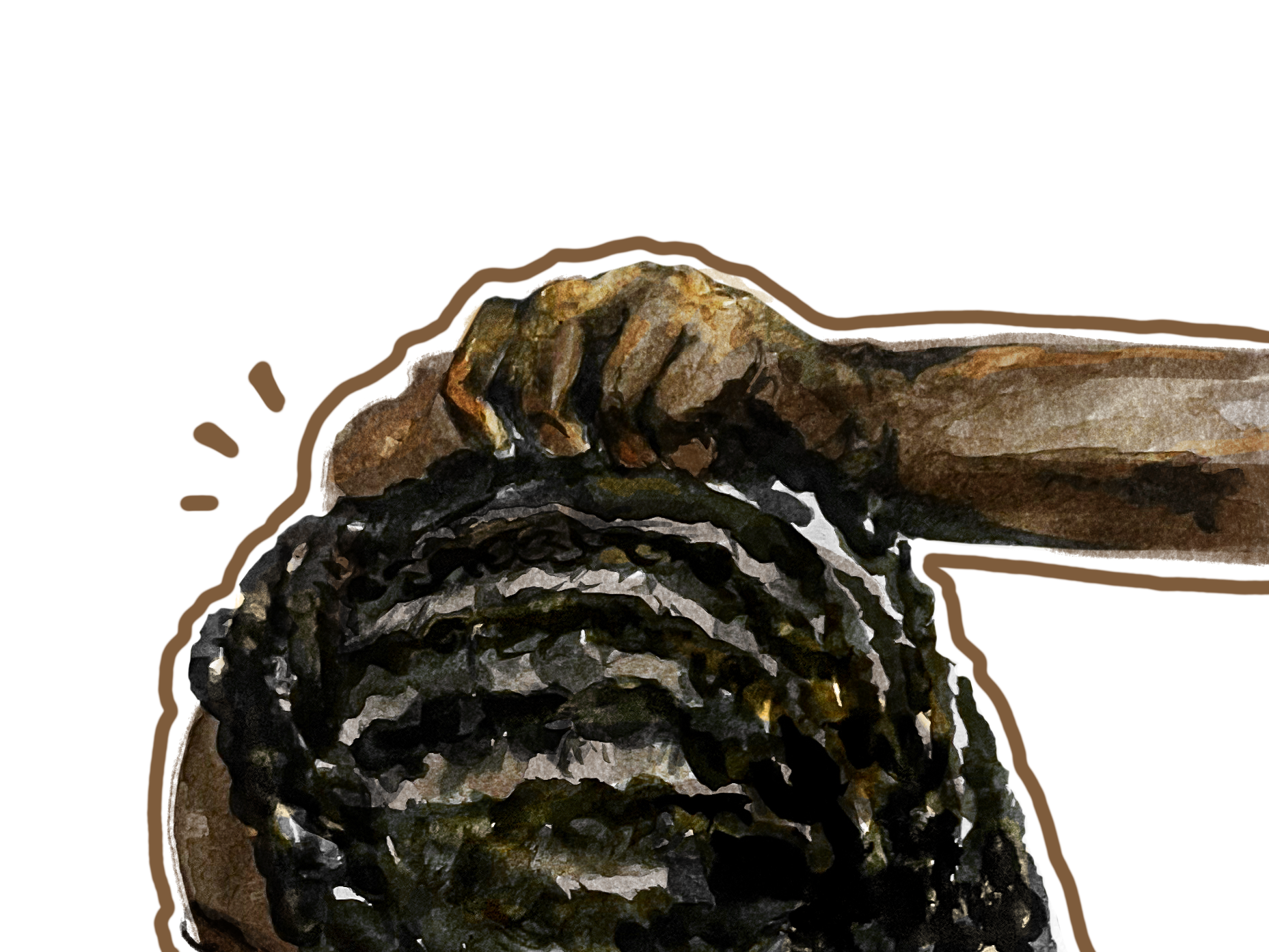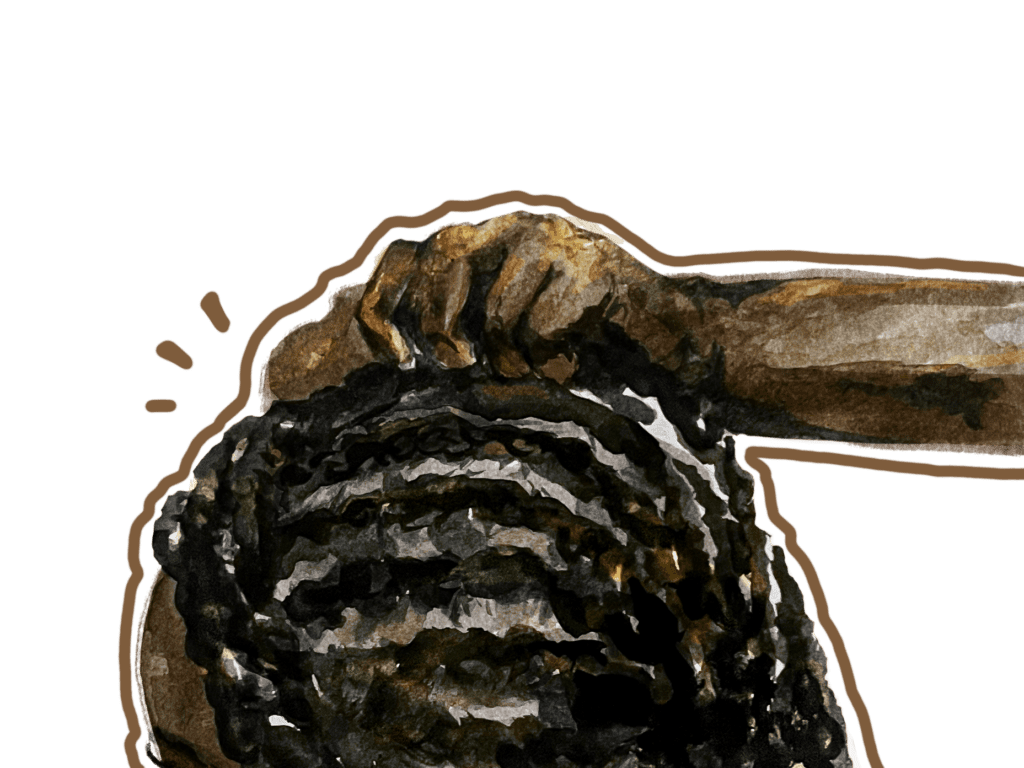
Katherine Kwon
Beauty Supply has long been a bastion of support, community, and joy for Black women. An extension of your salon, Beauty Supply is the holy grail of hair care. Store aisles are (almost always) lined with products formulated solely for the styling and protection of black hair. At any time of the day, men and women of all ages can be seen solemnly walking down the aisles, like disciples on a pilgrimage. Her earliest memories with her mother are walking through the fluorescent-lit aisles of Super Kanojo Cosmetics, a Kenyan beauty supply chain, wearing Alice bands, hair ties and matching earrings to match her next hairstyle. That’s what I chose. At Beauty Supply, every item is sacred. It’s a miracle to finally discover a product that works, especially when you’re limited to products within the walls of a store.
When the Internet exploded in popularity, so did these safe spaces. Suddenly, there was a way to share what works for each hair type online. I could always log in and find someone who looked exactly like me and had their hair done in ways I never thought possible with my hair type. With the advent of the internet, anything is possible in the world of black hair. But the world is losing its magical feel.
Before the internet, finding hair products that worked for Black women was a miracle and a reason to celebrate. Now, with the democratization of information, the best products for Black women’s hair are increasingly accessible. Products formulated specifically for black hair types that are currently publicly advertised are being picked up and popularized by white audiences rather than serving the communities in which they are created. Cosmetic companies, dazzled by this new and lucrative customer, are beginning to change their formulations. A famous example of this phenomenon is the Black-founded Shea Moisture hair product line. This product was launched after offering products for black hair for about 10 years. Restructured the product to suit a white audience. As soon as they become popular among that audience. As an avid user of Shea Moisture, I was shocked and disappointed to find that the new product’s consistency was lighter and, frankly, unusable for my dense, textured hair type. In 2017, Shea Moisture was sold to British goods company Unilever, which owns brands ranging from Dove to Ben & Jerry’s, and is no longer black-owned.
The acquisition of Shea Moisture marked the beginning of the disruption of the intimate space for black hair care.Last month, TikTok influencer Alix Earl I posted a video I promoted my favorite Amazon purchases in 2022. Among them are Mielle Organics Rosemary Mint Scalp and Hair Strengthening Oil, a product formulated to strengthen black hair types. Earle claimed to have seen “amazing hair growth” even though she had only been using the product for about a month, and linked to it through her Amazon affiliate page. After Earle’s TikTok went viral, Mielle Organics hair oil started selling out online and in beauty supply stores across the country. Suddenly, new customers flooded beauty supplies to buy oils, some having to refill them multiple times a day. The frenzy of buying Mielle’s hair products caused a trickle-down of other products due to fear of formula changes like Shea Moisture. I remember walking into my beauty supply store and seeing patrons shuffling anxiously between the aisles, looking for replacements for their favorite products that were selling out faster than ever. It’s not hard to summarize what Earl did. Hair oil sold out and the black community panicked. Her audience is none the wiser about what she did either. Thus begins a new cycle of appropriation of black hair products.
We’ve seen this all before. The culture that is dear to our hearts is ripped from our hands and turned into a commodity. It becomes unrecognizable after a while. Mierre’s drama is not just about repeating the harsh cycles of consumer culture until there is nothing left. Mr. Miel then issued a statement. They say they are “forever committed to developing high-quality, effective products that meet the needs of our customers’ hair types.”
From the age of three, I spent hours sitting between my hairdresser’s legs as she pulled my hair into different styles: cornrows, twist-outs, half-lines, half-braids, pick-and-drops, box braids. I remember that. Small braids like Bantu knots are affectionately called “Bantu knots.” Matas. As I got my hair done, I was surrounded by the sights and sounds of older black women discussing their lives. Her 2000s R&B music was playing from giant speakers mounted on the wall. Even amidst the pounding noise of drums and bass, gossip permeated as refreshingly as birdsong. A thick, chemical smell, like a relaxer, like tattered hair that has been fried in a blow dryer. Small black stools that move up and down. The late afternoon sun streams in through the window, punctuated by strands of hair flying everywhere. The hairdresser said she would make her “chips” (french fries) if she was hungry, but only if she didn’t tell her mom. In this space, hairstyling was a ritual, a community effort that valued everyone’s appearance. I learned to respect, cherish, love, and treat my hair with joy. Hair and hairstyling became a symbol of celebrations, such as styling and curling hair for birthdays and milestones, and became a source of everyday confidence and self-confidence.
Hair salons in black neighborhoods are sanctuaries. Getting your hair done is a process that requires great care, time, and a deep personal connection with your hairstylist. The hairstylist is usually your mother or someone close enough to her. As you get older, decisions like when and how often to trim, retouch, style, and press your hair become more important. On the day you wash your hair, you need to plan what kind of products you will use and spend time caring for your hair. Products reach most people through recommendations. The best way to do that was to send you to the salon with a small bag of products that your mother had prepared in advance. The way this information spreads through grassroots networks not only holds us accountable (stories of bad hairdressers travel quickly!) but also as the foundation of a community that puts mutual health at the top of its priority list. It worked. Black hair care has been cultivated through thousands of years of community action.In a society with few priorities. Knowledge and care for black hair typesHair care has, for the most part, been the black community’s best-kept secret.
Products that work online are difficult to share without becoming commodified and ultimately lost to the opportunistic cycles of capitalism. The community that lovingly cared for me when I was a child is now increasingly difficult to find.
The appropriation of Black beauty culture permeates the notion of Black beauty spaces as places of refuge and community. I think back to the hair salons and beauty supplies of my childhood, the places where Black women once felt empowered. Currently, the goals and values of users and brands are becoming disconnected. For as long as I can remember, a culture of Black care has been embedded in spaces and communities that protect us and our values. I imagine my local salon slowly filling up with people standing on my little black chair, watching and waiting. Now, those walls are being opened against the will of the people to whom these practices belong. We can no longer rely on the security of our networks, nor can we rely on the brands that have grown with us. Is our bond still sacred?





